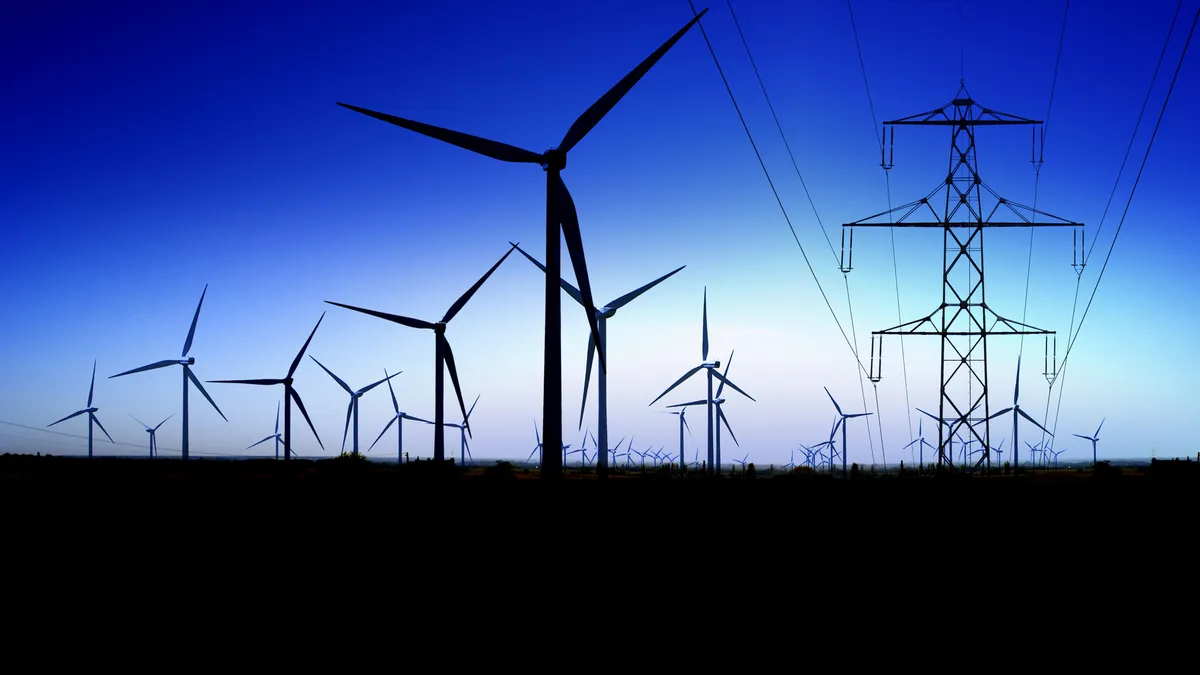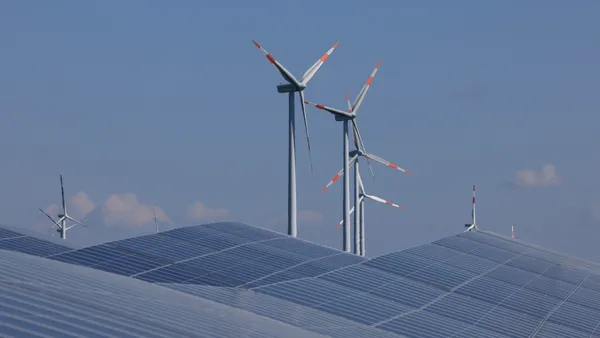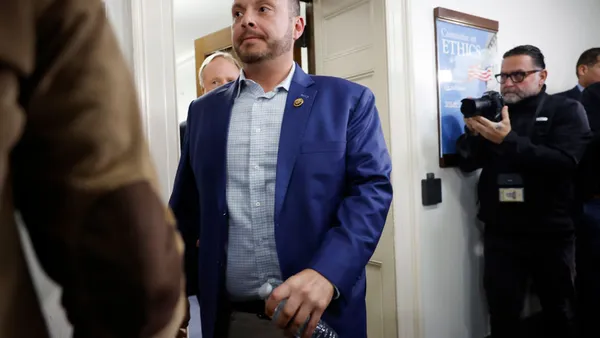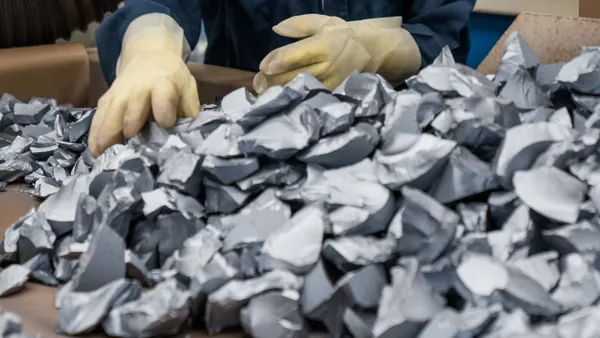Dive Brief:
- Oklahoma is paying millions more than it expected via a wind tax credit meant to spur development in the state, and now there is talk of pulling the incentive off the table, the Norman Transcript reports.
- Oklahoma's zero-emissions credit paid to wind companies exceeded $27 million in 2013, the last year for which there is complete data. The state is still processing claims from 2014, and is expected to have a final tally next month.
- Critics of the credit say the state could pay out $65 million for 2014, the result of poor estimations of how quickly the industry could grow.
Dive Insight:
Oklahoma is in the midst of a budget crisis, facing a $900 million shortfall and looking to cut expenses, but pulling back a tax credit when businesses have made investment decisions still isn't sitting right with some.
The Norman Transcript spoke with Rep. Earl Sears (R), who as chair of the state House Appropriations and Budget committee is helping the state look for ways to tighten its belt. The wind credit was enacted in 2001 before Sears was in office, but he said its growth does not surprise him.
The state tax commission had anticipated payments, which are made from Oklahoma's general coffers, to barely top $19 million by 2018. But 2012 payments already topped $18 million.
“I mean, how do you tell someone to come back to Oklahoma and we’ll do ‘X,’ and they get here and we say, ‘Guess what? We’re taking ‘X’ away from you?’” Sears told the Transcript. “I just can’t be part of that.” Though he said changes to future credits could be more palatable.
The Legislature already adjusted two other incentives for the wind industry: eliminating a five-year property tax exemption for new developments beginning in 2017 and disallowing the industry to claim investment or job creation tax benefits, the news outlet reports.
A group called Wind Waste believes payments in 2014 could reach $65 million, and they are asking lawmakers to cap the credit or eliminate it. They are also critical of the credits being paid from the state's general fund.
"Proponents of wind convinced the Legislature that if we didn’t have some gratuity from the state taxpayers payable to them, that they’d go build their wind farms someplace else,” said Rick Mosier, a member of the group.














